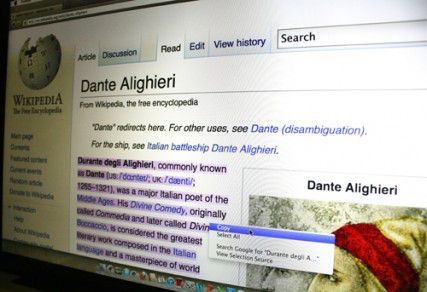
Despite a recent study by the Pew Center and “The Chronicle of Higher Education” that suggested more than half of U.S. colleges experienced increases in plagiarism, officials at Boston University said they have not seen a plagiarism increase among university students.
Fifty-five percent of college presidents reported increased plagiarism, while 40 percent reported no change. Only two percent of the schools surveyed said that plagiarism had decreased. The study, which examined plagiarism patterns over the last 10 years, included 1,055 college presidents from two- and four-year institutions, both public and private.
Nearly all of those surveyed attributed the increase to technology, the Internet and the availability of online courses. While 71 percent of the public thinks less of online classes, about half of the college presidents surveyed said online courses have the same value as traditional courses. Most of their students, they said, will be learning online within the next 10 years, the study reported.
Of those surveyed, 89 percent of four-year public institutions and 60 percent of four-year private institution offer online classes.
The study also found that while more students are using mobile phones and laptops during class, most colleges do not have guidelines in place for the use of these devices. Only 2 percent of presidents reported that these devices were prohibited in classrooms.
Dean of Students Kenneth Elmore said that technology factored into the results of the study, but that plagiarism was ultimately a question of principles.
“Technology has caused students to move faster and cut and paste and forget to attribute their sources,” he said, “but it’s really a matter of basic values, that you don’t represent someone else’s work as your own.”
In an interview with The Daily Free Press last spring, Associate Provost Victor Coelho said the Internet makes it easier for students to both do research and plagiarize.
“It’s a two-way street,” he said in the interview. “The solution is also the problem.”
Coelho said to prevent plagiarism, some BU professors use Turnitin.com, a site that scans submitted essays and looks for text copied from the Internet.
Last year, 76,000 essays were submitted to the site through BU professors. Of the 76,000, less than 4,000 have resulted in plagiarism, Coelho said.
“I haven’t heard of anyone plagiarizing at BU because I think there are more severe repercussions in college, but technology makes it easier to plagiarize,” said College of Fine Arts sophomore Veronica Lee.
Elmore said that plagiarism is a constant source of concern among BU faculty, even though they have not seen an increase.
“There are always conversations here about what exactly plagiarism is and on a bigger scale, preventing academic dishonesty in general,” he said. “That’s part of why we came up with a new academic code of conduct this year.”
The new code, which was put into effect on Sept. 1, is “designed to assist in the ongoing cultivation of a supportive and productive environment for undergraduate students,” according to an email sent out to the BU community by Provost Jean Morrison.
“I hope it will give students some peace of mind that not only rules and guidelines, but also procedures, are so clearly articulated,” Morrison told The Daily Free Press earlier this month. “I think that it is so clear and specific it will be a great benefit to students. There are no gray areas.”
Steven Jarvi, associate dean for undergraduate programs, said that while plagiarism has transformed due to technology, the issue remains the same.
“Overall we haven’t seen an increase in plagiarism at BU,” he said.
“I haven’t seen as much plagiarism at BU as I did in high school, but I have seen people getting others to write papers for them rather than getting it online,” said Stephanie Rhee, a sophomore in the College of Arts and Sciences.
Anna Henchman, an assistant professor in BU’s department of English, said she has not noticed an increase in plagiarism at BU, but that technology definitely made it easier for students to cheat.
“I personally haven’t had too many problems with plagiarism,” she said. “But I do worry a bit that there are so many resources that students can easily look up from Sparknotes and the like, that tend to give overly simplistic answers and that usually don’t get credit.”
Henchman said she works with students to get a sense of their written voices. Talking to her students about each paper, she said, helps her “guard against plagiarism.”
“I feel like it’s easier to have tons of block quotes and technically plagiarize than to flat out steal,” said CAS junior Chris Gilmore. “I’m sure there are people who do it successfully, but the time you have to spend almost makes it not worth it.”
This is an account occasionally used by the Daily Free Press editors to post archived posts from previous iterations of the site or otherwise for special circumstance publications. See authorship info on the byline at the top of the page.












